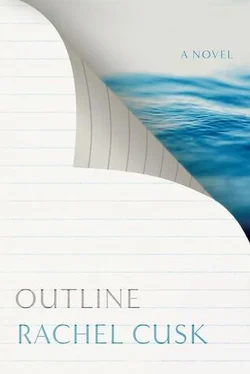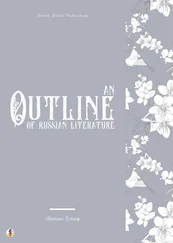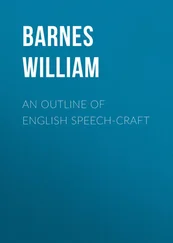‘Lately,’ she said, ‘I have taken the trumpet out of its case and started practising. I play it in my little apartment.’ She laughed. ‘It feels good to be making that rude noise again.’
On the way back down the hill, Elena said she would have to stop off in Kolonaki Square to get her motorbike. She offered Melete a lift on the back, since they lived close to one another. There was plenty of room for two people, she told me, and it was the quickest way. She had travelled all over Greece like that with her oldest female friend, Hermione, the two of them even taking the bike on the ferries out to the islands with just some money and their swimming costumes, finding beaches down dirt tracks where there wasn’t another person to be seen. Hermione had clung to her down some formidable mountainsides, she said, and they had never yet fallen off. Looking back, those were some of the best times of her life, though at the time they had had the feeling of a prelude, a period of waiting, as though for the real drama of living to begin. Those times had more or less gone, now that she was with Konstantin: she wasn’t sure why, because he would never have stopped her from going off travelling with Hermione, in fact he would have liked it, as modern men always liked it when you proved your independence from them. But it would have felt like a fake somehow, she said, a copy, to try to become those girls again, hurtling down those dirt roads, never knowing what they would find at the end of them.
The assignment was to write a story involving an animal, but not all of them had completed it. Christos had invited them to go Lindy Hop dancing the previous evening; it had been a late and exhausting night, though Christos himself appeared unaffected. He sat there beaming with his arms folded, proud and fresh, laughing startlingly and loudly at their observations concerning the evening’s events. He had got up early to write his story, he said, though he had found it hard to introduce an animal into his chosen subject-matter, which was the hypocrisy of our religious leaders and the failure of public commentators to subject them to the proper scrutiny. How would ordinary people ever become politicised, if the intellectuals of our time didn’t show them the way? This was something about which he and his close friend Maria, incidentally, disagreed. She was an adherent of the philosophy of persuasion: it sometimes did more harm than good, she said, to try to force people to recognise unpleasant truths. One had to stay close to the line of things, close but separate, like a swallow swooping over the lineaments of the landscape, describing but never landing.
So he had struggled, Christos said, to bring an animal into his account of the scandalous conduct of two orthodox bishops at a recent public debate. But then it had occurred to him that this was perhaps what I had intended. I had wanted, in other words, to present him with an obstruction that would prevent him from going the way he was naturally inclined to go, and would force him to choose another route. But try as he might he could not think of any way of getting an animal into the debating chamber of a public building, where it had no right to be. Also his mother kept disturbing him by coming in and out of the dining room, the room in their small apartment that was least often used and where, consequently, he usually did his studies, spreading his books and papers all over the old mahogany table that had stood there for as long as he could remember. Today, however, she had asked him to clear his things away. A number of family members were coming to dinner and she wanted to clean the room thoroughly in preparation for their arrival. He asked her, with some irritation, to leave him be — I’m trying to write, he said, how can I write without my books and papers and with you coming in all the time? He had completely forgotten about this dinner, which had been arranged a long time ago, and was being held in honour of his aunt and uncle and cousins from California, who had returned to Greece for their first visit in many years. His mother was not, he knew, looking forward to the occasion: this particular branch of the family was boastful and ostentatious, and his aunt and uncle were forever writing letters to their Greek relatives that pretended to be loving and concerned but were really just opportunities for them to brag about how much money they had in America, how big their car was, how they had just had a new swimming pool installed and how they were too busy to come home for a visit. And so, as he had said, many years had passed in which he and his mother had not laid eyes on these relatives, except in the photographs they regularly sent, which showed them standing in bright sunlight beside their house and car, or else at Disneyland or outside the Hard Rock Cafe, or in some other place where you could see the big Hollywood sign in the background. They also sent photographs of their children, graduating from this college or that, in mortar boards and furred gowns, baring their expensive teeth against a fake blue sky. His mother displayed these photographs dutifully on the sideboard; one day, he knew she hoped, Christos too would complete his degree and she would be able to put his photograph beside them. The photograph Christos hated most of all was the one of his handsome, grinning, muscular cousin Nicky, which showed him in some sort of desert setting with a giant snake — a boa constrictor — draped across his shoulders. This image of superior manhood had often haunted him from the sideboard, and looking at it now, he no longer felt annoyed with his mother: he felt sympathy for her, and wished that he had been a better and braver son. So he stopped what he was doing and helped her clear things away.
Georgeou put his hand up. He had observed, he said, that where yesterday we had the windows open and the door shut, today it was the other way around: the windows were sealed, and the door to the corridor was significantly ajar. Also, he wondered whether I had noticed that the clock had moved. It was no longer on the wall to the left, but had taken up the mirroring position on the wall opposite. There was certainly an explanation for the movement of the clock, but it was hard to think of what it might be. If an explanation occurred to me perhaps I would inform him, because as things stood he found the situation disturbing.
He had finished writing his story, Christos continued, on the bus here, after he had realised that the photograph of Nicky had after all given him a way out of his dilemma. One of the bishops has a hallucination, there in the debating chamber: he sees a huge snake, draped over the shoulders of the other bishop, and realises that this snake symbolises the hypocrisy and lies they have both been spouting. He vows then and there to be a better man, to tell only the truth, and never to mislead and deceive his people again.
Christos folded his arms again and beamed around the room. Presently Clio, the pianist, put her hand up. She said that she too had found it difficult to write about an animal. She knew nothing about animals: she had never even had a pet. It would have been impossible, given the exacting nature of her practice schedule even in early childhood. She would have been unable to look after it and give it the attention it needed. But the assignment had caused her to notice things differently: walking home, she had not looked at the things she usually looked at but instead had become, as she walked, increasingly aware of birds, not just the sight of them but also their sound, which, once she attuned her ear to it, she realised she could hear constantly all around her. She remembered then a piece of music she had not listened to for a long time, by the French composer Olivier Messiaen, written during his internment in a prisoner-of-war camp during the Second World War. Some of it was based, or so she had understood, on the patterns of birdsong he had heard around him while under detention there. It struck her that the man was caged while the birds were free, and that what he had written down was the sound of their freedom.
Читать дальше












